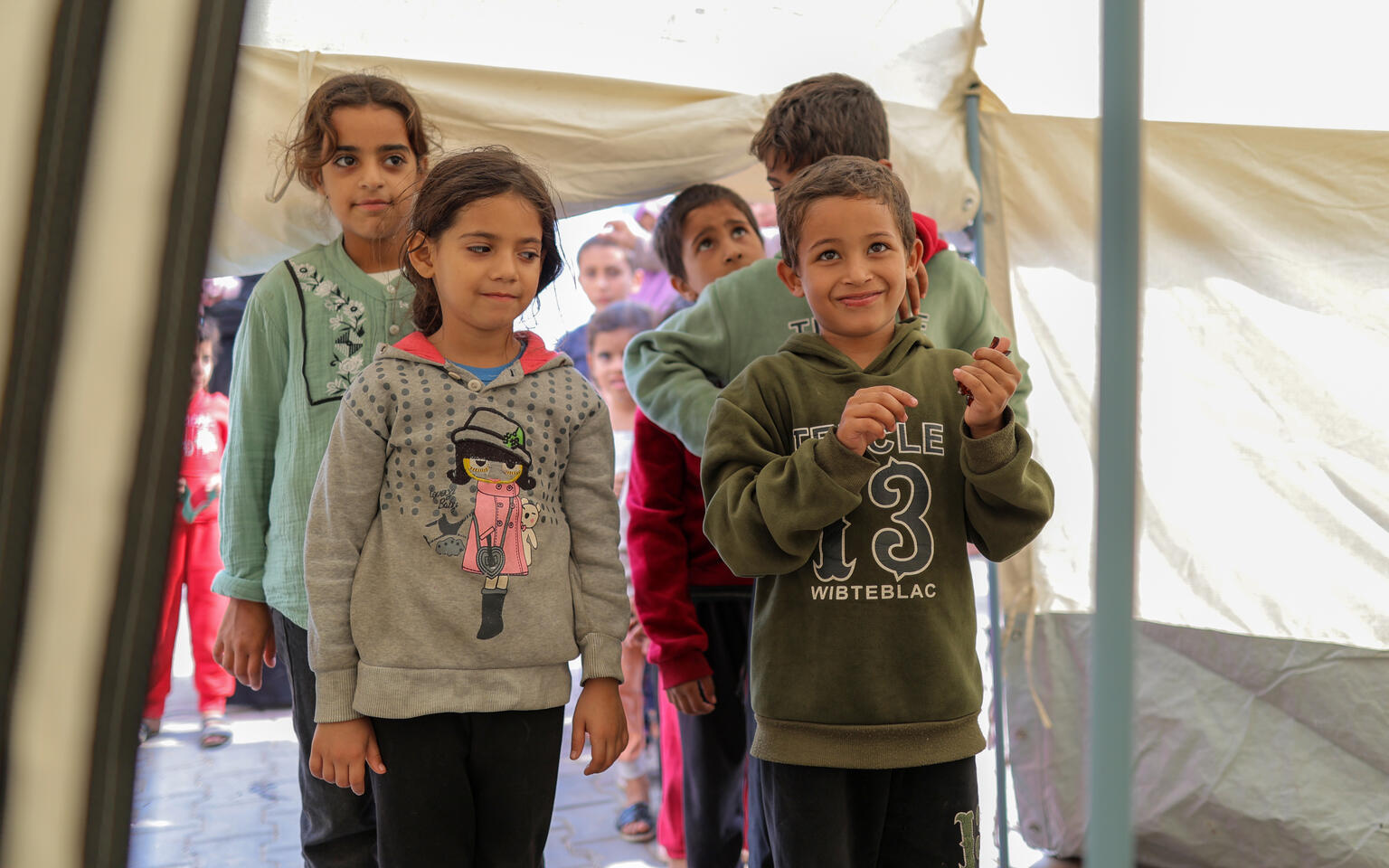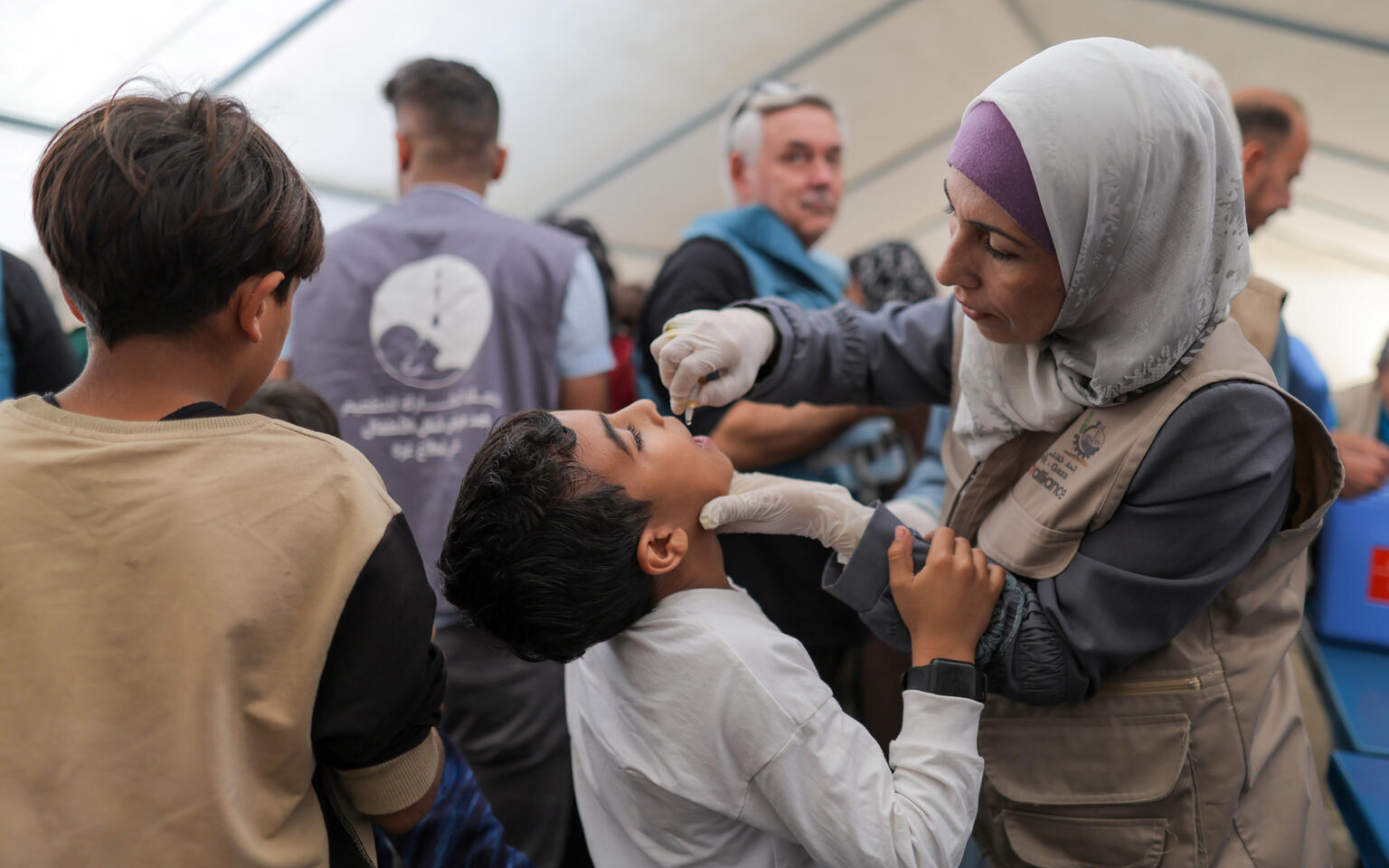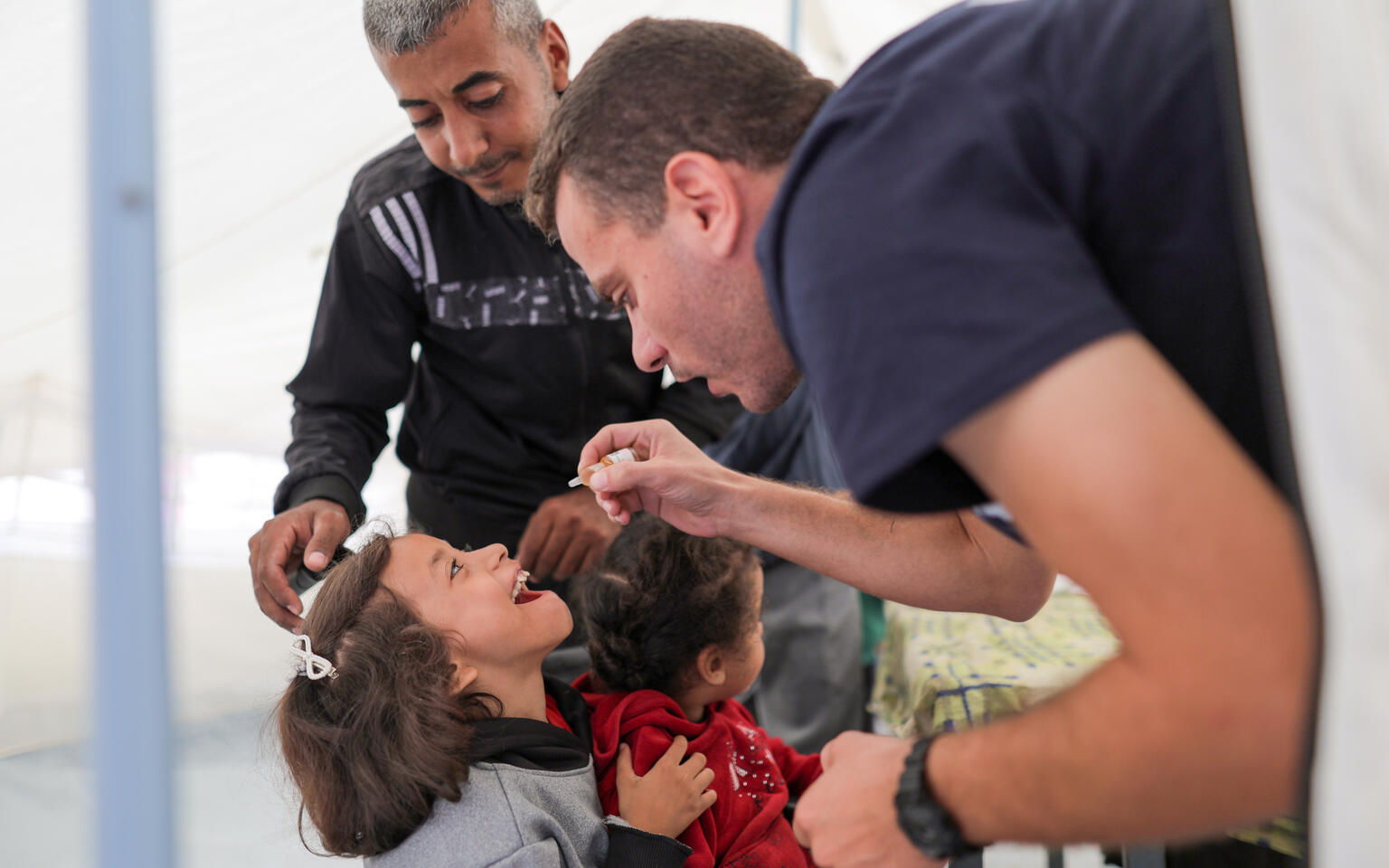Real-Time Insights in a War Zone: Using Polio Pulse to Respond to Misinformation in Gaza

In humanitarian emergencies, misinformation can spread faster than facts. In Gaza, where a polio outbreak has been unfolding amid devastating conflict, social media has become both a battleground and a lifeline. To monitor and respond to emerging narratives in real time, UNICEF and partners are leveraging Polio Pulse, a rumor-tracking system that collects, analyzes, and categorizes online discourse around polio and immunization.
Why Polio Pulse Matters in Gaza
Since the declaration of a circulating vaccine-derived poliovirus type 2 (cVDPV2) outbreak in July 2024, health partners have worked against the clock to vaccinate nearly every child under ten across the Gaza Strip. But in a context marked by displacement, fear, and damaged infrastructure, vaccine misinformation has taken new forms—frequently shared by influential voices and often rooted in legitimate anxiety.
Polio Pulse offers a unique opportunity to listen in real time. It enables teams to:
- Track the spread and evolution of polio-related misinformation
- Identify high-risk narratives early—especially those from trusted figures
- Adapt messaging and mobilization strategies to local realities
- Coordinate responses across partners based on shared insights
This system complements social listening on the ground and plays a critical role in guiding risk communication during crisis response.
Highlights from the April–May 2025 Analysis
Doctor promotes misleading claims about the polio vaccine campaign in Gaza
🟥 High Risk – May 4
A post by a Palestinian doctor in Gaza falsely described oral polio vaccines (OPV) as unsafe, particularly for malnourished children. The post misrepresented the risk of vaccine-derived polio and questioned why OPV is still used. Most replies supported the claim.
📌 Response Guidance: Acknowledge concerns with empathy. Clarify that the vaccine used in Gaza (nOPV2) has a significantly lower risk profile, is used globally, and is essential during outbreaks.
Conspiracy theories follow reports of Israel blocking polio vaccines from entering Gaza
🟨 Low Risk – April 6
Following reports that vaccine shipments were being blocked, conspiracy theories began circulating about the “toxicity” of vaccines. While engagement was low, the posts show how access issues can be distorted.
📌 Response Guidance: Continue to reinforce key facts through community voices, and clarify the safety and life-saving role of nOPV2.
👉 You can explore the live summaries of these nodes on Polio Pulse Palestine.
Posts claim that Gazans don’t need “poison” vaccines
🟧 Medium Risk – April 23
A viral post claimed that Gaza’s children don’t need “poison” vaccines, referencing alleged import restrictions. The post implied that polio is a hoax and cited a fake medical organization to discredit vaccines.
📌 Response Guidance: Use trusted messengers to emphasize that polio is a real, dangerous disease and that vaccines are the only protection—especially for children in crisis zones.
Polio Work Continues—Even Amid War
Despite ongoing conflict, the Palestine Ministry of Health—supported by UNICEF, WHO, UNRWA, and Global Polio Eradication Initiative partners—achieved 97% vaccination coverage during two emergency campaigns in 2024. Over 1.6 million doses of nOPV2 were delivered, with Vitamin A supplementation reaching 92.4% of eligible children.
UNICEF and partners rapidly rebuilt Gaza’s cold chain system, deployed over 900 social mobilizers, and reached caregivers through digital platforms and loudspeaker messaging. These efforts were carried out while 90% of the population was displaced, and the majority of health facilities were either destroyed or severely damaged.
As Polio Pulse continues to surface real-time concerns from Gaza and beyond, one truth remains clear: facts alone are not enough—trust must be built. And in places like Gaza, where resilience meets adversity every day, trust begins with listening.



